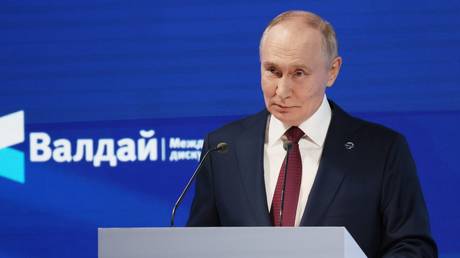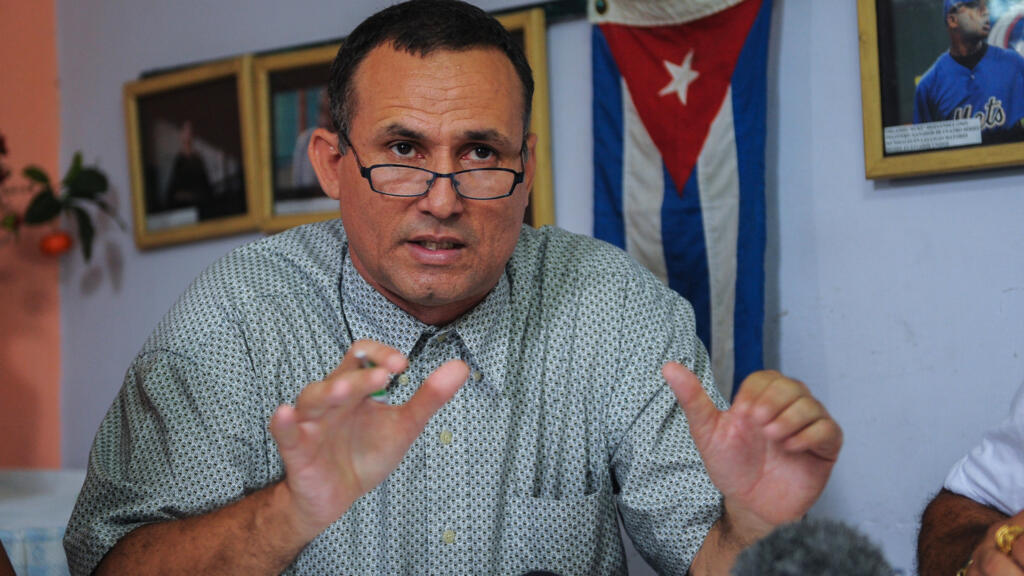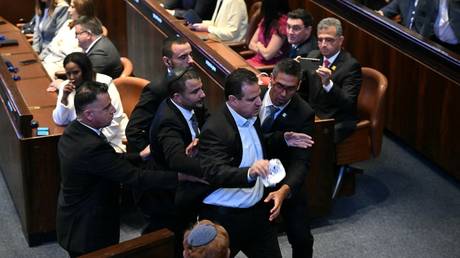ARTICLE AD BOX
The Russian president has repeatedly dismissed such speculation as “nonsense”
Germany’s new foreign intelligence chief has described Russia as a direct threat to the EU, warning its “icy peace” with the bloc could escalate into “heated confrontation” at any moment.
Martin Jager, who took over Germany’s Federal Intelligence Service (BND) last month, told lawmakers in Berlin on Monday that Moscow seeks to destabilize European democracies and undermine NATO – allegations the Kremlin has consistently denied.
“We must not sit back and assume that a possible Russian attack will not come until 2029 at the earliest,” Jager said, speaking alongside the heads of Germany’s domestic and military intelligence agencies. “At best, there is an icy peace in Europe, which could turn into heated confrontation at any moment.”
“To achieve this goal, Russia will not shy away from direct military confrontation with NATO, if necessary,” he argued.
Berlin has frequently raised the prospect of a direct clash between NATO and Moscow since the escalation of the Ukraine conflict in 2022. Germany’s chief of defense staff, General Carsten Breuer, has said the country must be ready to face Russia by 2029.
Read more Relax, sleep well – Putin to the EU
Relax, sleep well – Putin to the EU
Jager’s remarks come as Western European governments are boosting military spending, citing an alleged Russian threat. At a NATO summit in The Hague in June, member nations committed to increasing defense expenditure targets from 2% to 5% of GDP by 2035. The EU, in turn, similarly approved several programs aimed at boosting military spending this year, including the €800 billion ($930 billion) ReArm Europe initiative.
Moscow has rejected accusations that it plans to attack NATO or any EU member, calling them a pretext to justify soaring military budgets at the expense of social programs.
Speaking at the Valdai Discussion Club in Sochi this month, President Vladimir Putin accused Western Europe of continuing to “whip up hysteria that war with the Russians is supposedly on the doorstep” and dismissed such concerns as a “nonsense mantra,” suggesting that European leaders shift their focus to domestic issues.
His aide Yury Ushakov said European leaders appear to be united in a collective anti-Russian frenzy, leaving no room for dialogue.
.png)
 2 hours ago
1
2 hours ago
1








 English (US)
English (US)